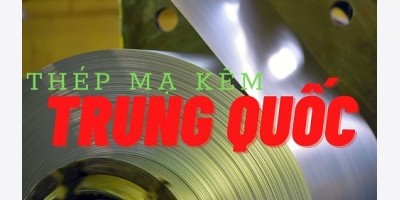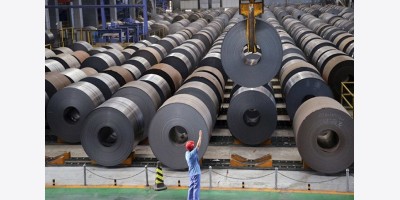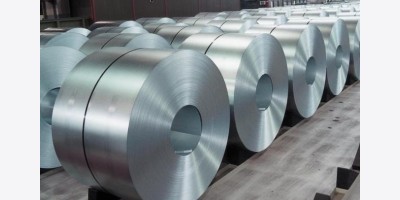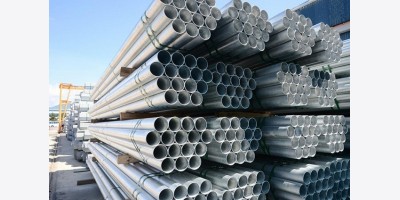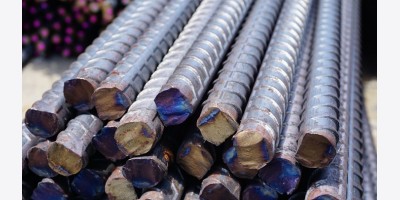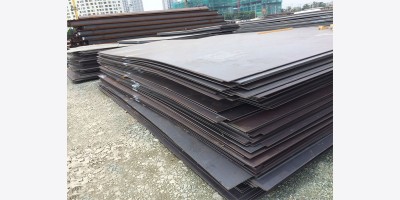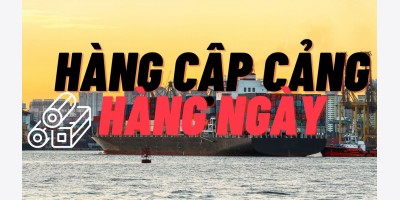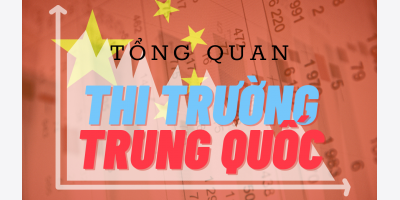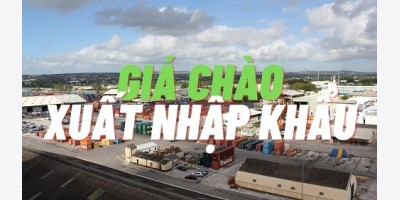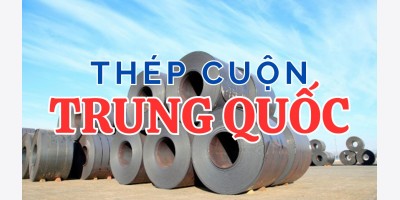| Taiwan’s China Steel cuts June prices by 9% | |||||||||||||||||||||||||||||||||||||||||||||
| Taiwan’s China Steel Corp (CSC) will cut its June domestic steel prices by an average of 9.4% or by TWD 700-2,511/t ($21-75/t) on expectations of lower raw material prices, says the company in a 30 April statement. Prices of hot rolled and cold rolled coils will be cut by TWD 2,055/t and TWD 1,918/t respectively. This will take CSC’s ex-works list prices for SPHC-grade HRC and SPCC-grade CRC to TWD 15,095/t ($451/t) and TWD 17,981/t ($537/t), according to SBB’s calculations from CSC’s first quarter prices. Prices of electro-galvanized and non grain-oriented silicon coils both face cuts of TWD 2,000/t and TWD 700/t respectively. Prices of hot-dip galvanized coils and steel plates will drop by TWD 1,480/t and TWD 2,511/t respectively. Bar and wire rod prices will be lowered by TWD 1,500/t. Though coal and iron ore long-term contracts have not been settled, CSC is lowering its prices to reflect expected drops in raw materials prices and to prevent an influx of cheap imports that may disrupt the market, CSC says. CSC typically announces its prices by the quarter but in February it announced only April-May prices, as Steel Business Briefing reported.
| | ||||||||||||||||||||||||||||||||||||||||||||
| | | ||||||||||||||||||||||||||||||||||||||||||||
| | | ||||||||||||||||||||||||||||||||||||||||||||
| Offer prices to east Asia for containerised scrap jump | | ||||||||||||||||||||||||||||||||||||||||||||
| Offer prices for containerised scrap imports have risen in east Asia. At around $260/tonne cfr, containerised scrap offers are higher-priced than bulk scrap which last concluded at $255/t cfr Korea for HMS 1. "I’ve had no bookings for the last three weeks because scrap prices are moving up fast,” a Vietnamese scrap trader tells Steel Business Briefing. He says that offers of containerised mixed ferrous scrap cargo of 80:20 heavy melting scrap (HMS) 1/2 and shredded are at $285-290/t cfr whereas bids are at $270/t cfr for 80:20 and $275/t cfr for shredded. Another says he has heard that containerised scrap was booked at $270/t cfr Vietnam whereas offers are now at $280-285/t cfr for 80:20. Offers of containerised shredded are prevailing at $280/t cfr Malaysia. However, importing sources claim that they booked a small lot at $255-260/t cfr last week. In Taiwan, those that needed material recently booked containerised 80:20 material at $260-265/t cfr. “Buyers are generally resisting these higher scrap prices, at least for the short term,” a Taiwanese trader says. He notes that certain mills, such as Feng Hsin Iron & Steel, preferred to book Russian pig iron at $275/t cfr instead. The Taiwanese are expected yield to higher scrap prices if the rising price trend continues. In Korea, no offers of bulk scrap are heard because of recent bookings which will see a large volume of bulk scrap arriving in May and June. This week Hyundai Steel booked Japanese H2 grade scrap at ¥23,200/t ($237) fob. “Japanese scrap suppliers are asking for more than ¥24,000/t but the Korean mills are in no hurry to book because of the inflow of scrap after Golden Week,” a trader in Seoul says.
| | ||||||||||||||||||||||||||||||||||||||||||||
| | | ||||||||||||||||||||||||||||||||||||||||||||
| | | ||||||||||||||||||||||||||||||||||||||||||||
| Destocking should end soon, but growth is years away - WSR | | ||||||||||||||||||||||||||||||||||||||||||||
| Industry destocking is expected to end in the next quarter or two, but real growth — at least for companies in the more mature economies, impacted by the consumer recession — is probably a few years away. The combined stimulus packages could boost consumption by up to 50m tonnes over the coming 12 months, says SBB Research. Nevertheless demand in Japan may take 3-5 years to recover to pre-recession levels, say local producers. And for Europe, Eurofer has said that for 2010 real consumption would stay low, but apparent consumption could see some growth, “owing to the fading influence of the stock cycle.” In contrast, in parts of Africa, the Middle East and India there could be an increase in constructional steel demand in 2009. The current World Steel Association forecast for China in 2009 is a decline in apparent use of 5%, but this may later be revised upwards, it says. For now, the main issue facing the long products market is confidence: there are doubts about the sustainability of the recovery in the Middle East and the Black Sea. Yet scrap prices in many places are still rising, as are billet and rebar prices. However, higher CIS billet export prices are being challenged by lower US fob prices. The flat products situation is confused. Plate is weak, but HRC is more stable at a low level in Europe and North America. It remains under pressure in East Asia, with Chinese exports potentially challenging local suppliers. This edited analysis of global markets is taken from Steel Business Briefing's World Steel Review of 29 April.
| | ||||||||||||||||||||||||||||||||||||||||||||
| | | ||||||||||||||||||||||||||||||||||||||||||||
| | | ||||||||||||||||||||||||||||||||||||||||||||
| Vietnamese HRC buying to slow for a while | | ||||||||||||||||||||||||||||||||||||||||||||
| Vietnamese importers are expected to slow their import buying for the next two weeks after actively importing hot rolled coil into the country. Trading sources tell Steel Business Briefing that an estimated 200,000 tonnes of HRC were booked in April and that prices concluded for May/June shipments of mainly Taiwanese, Korean and Japanese material were mostly at $410-420/t cfr. Offer prices have since moved up to $420-430/t cfr for material from Korea and Taiwan but bids are generally at $410-415/t cfr. Traders were surprised at bookings of European-origin HRC at $405-410/t cfr last week. “It was an aggressive price,” a trader in Ho Chi Minh says. Another says the price was attractive for the Vietnamese buyers but he believed that 3mm and up material was included at this low price booking. The volume booked in April is considered "normal" since imports are around 2m tonnes annually. Half of the HRC bookings made in April were Taiwanese, around 25% were Korean, and 20% from Japan. Ukrainian material was also booked for June/July shipment at $380-400/t cfr. This is the high season for Vietnamese demand, an importer tells SBB. He expects booking to continue after mid-May because of the early-May holidays in Japan and Korea and another week for the market to return to make new offers and negotiate. But bookings will slow after July shipment because of the approaching rainy season in the country, he adds.
| | ||||||||||||||||||||||||||||||||||||||||||||
| | | ||||||||||||||||||||||||||||||||||||||||||||
| | | ||||||||||||||||||||||||||||||||||||||||||||
| Severstal forced to write down US assets | | ||||||||||||||||||||||||||||||||||||||||||||
| As reports swell that Severstal is seeking to divest its American assets, a story reported first by Steel Business Briefing earlier this week, a review of the Russian steelmaker's 2008 financial statement reveals that its auditors forced the company to drastically write down three of its US operations. Severstal globally incurred a $1.5bn 2008 impairment charge with $1.3bn of the amount directly related to US assets. The steelmaker invested over $3.4bn in US acquisitions last year and only the Sparrows Point, Maryland mill purchase was spared impairment charges. Severstal purchased the former WCI Steel, a Warren, Ohio sheet mill, in July for $370m. The 2008 impairment charge of $382.6m for this mill includes a $376m write down of property and equipment and a $6m goodwill charge - pushing the valuation of the asset to a negative $12.6m. In addition, Severstal Warren chalked up a $41.7m loss from the date of the acquisition to year end. Due to a late 2008 closing on its $1bn purchase of PBS Coals, auditors indicate they have not completed fair value estimates for the mine and so far have only allocated a $361.1m goodwill impairment charge. After the acquisition in November, the mine incurred a $5.7m loss through year-end. As for Severstal's $1.1bn purchase of Wheeling-Pittsburgh Steel, the auditors tacked on a $621.8m impairment charge, of which $557.4m was for property, plant and equipment writedowns and $64.4m was for goodwill.
| | ||||||||||||||||||||||||||||||||||||||||||||
| | | ||||||||||||||||||||||||||||||||||||||||||||
| | | ||||||||||||||||||||||||||||||||||||||||||||
| MAN Industries wins Persian Gulf pipe supply contract | | ||||||||||||||||||||||||||||||||||||||||||||
| Indian welded pipe producer MAN Industries has secured a €202m order for 200,000 tonnes of Longitudinal Submerged Arc Welded (LSAW) pipes for use in an onshore gas pipeline project in a Persian Gulf state. MAN will commence production on the contract from July and complete it by the end of the current financial year next March. The pipes will have outer diameters of 24 to 56 inches in thicknesses of 12-24 mm and in grades up to API X70. The company said Gulf state awarding the contract and the contractor details are confidential. Headquartered in the western city of Mumbai, MAN commissioned its third Helical SAW (HSAW) line in Anjar in the western state of Gujarat last September that has now been streamlined, it tells Steel Business Briefing. MAN’s total production capacity at its Anjar works and in Pithampur in the central state of Madhya Pradesh stands at 1m t/y, split equally between LSAW and HSAW pipes. But actual production is far lower. Although production figures for the last fiscal year are not yet available, MAN expects to have produced nearly 350,000 t in the year to last March, about the same as during the year ended March 2008. Its total outstanding order book currently stands at Rs 20bn ($401.6m), however. Meanwhile, MAN has decided to temporarily halt construction on a new 300,000 t/y mill for spiral welded pipes in Little Rock, Arkansas, that was to have been completed this June.
| | ||||||||||||||||||||||||||||||||||||||||||||
| | | ||||||||||||||||||||||||||||||||||||||||||||
| | | ||||||||||||||||||||||||||||||||||||||||||||
| CISA charts lower production costs | | ||||||||||||||||||||||||||||||||||||||||||||
| Cheaper raw materials have enabled China’s major steel producers to significantly reduce their production costs during the January-March quarter, according to a report issued recently by the China Iron & Steel Association (Cisa). A survey among its mostly medium- and large-sized 72-member mills conducted by the association found that they had been able to lower average costs of pig iron making by RMB 350/tonne ($51.3/t), a near 14% reduction compared with January-March last year. The sales, financing and management costs also fell by 26%, 9% and 9% respectively. Contributing most to the reduction were lower prices of domestic iron ore concentrates – down 44% y-o-y – and those of imported iron ore where prices were 26% lower. Scrap prices were also down 22% y-o-y Cisa said, without giving details. Domestic iron ore supply is clearly exceeding demand due to the surge of imported iron ores and increased domestic iron ore production, as Steel Business Briefing has reported. During Q1, China’s iron ore imports surged by 20.9m tonnes y-o-y, Cisa says. The association says that prices of imported iron ore are also trending down through oversupply in the international market. In China, average cfr prices of imported iron ore fell by 37% y-o-y during January-March, it notes.
| | ||||||||||||||||||||||||||||||||||||||||||||
| | | ||||||||||||||||||||||||||||||||||||||||||||
| | | ||||||||||||||||||||||||||||||||||||||||||||
| Celsa cuts working time at strip and tube plants | | ||||||||||||||||||||||||||||||||||||||||||||
| Spanish steelmaking group Celsa is to implement temporary lay-offs of 380 people at its subsidiary Laminaciones Arregui. This company, part of the Celsa Atlantic group, produces strip, welded tubes and cold-formed sections. “This is owed to the current market situation in Southern Europe with flat products and especially welded tubes demand falling by more than 50% during Q1 2009,” Celsa tells Steel Business Briefing. Temporary layoffs will affect 380 people over 102 days during the year beginning 1June. Sales and management staff are not affected. “We understand that this will be sufficient enough to adapt the capacity to the number of work orders until the market recovers during 2010,” says Celsa. Negotiations are set to commence next week with the unions.
| | ||||||||||||||||||||||||||||||||||||||||||||
| | | ||||||||||||||||||||||||||||||||||||||||||||
| | | ||||||||||||||||||||||||||||||||||||||||||||
| Italian distributors suffer with fall in sales volumes | | ||||||||||||||||||||||||||||||||||||||||||||
| Small-scale companies involved in steel distribution are beginning to renegotiate workers’ pay and putting investments on hold, an Italian distributor tells Steel Business Briefing. “Smaller companies cannot turn to the government at times of crisis, therefore we have to make people redundant,” he says. “For now we are asking our workers to work less hours with a reduction of salary and we will probably have to make a few workers redundant to save the others,” he comments. The financial results of the first quarter are very low. “Prices have grown on the ground of high scrap prices but demand is very low and we are selling very little,” the distributor concludes.
| | ||||||||||||||||||||||||||||||||||||||||||||
| | | ||||||||||||||||||||||||||||||||||||||||||||
| | | ||||||||||||||||||||||||||||||||||||||||||||
| ArcelorMittal Spain: no plans to permanently shut Gijón BF | | ||||||||||||||||||||||||||||||||||||||||||||
| ArcelorMittal says it has no intention of permanently shutting down one of its blast furnaces at Gijón, Asturias, with plans to reopen it once the demand for steel has recovered, Steel Business Briefing learnt from flat products division for Europe manager, Michel Wurth, at the company’s annual results on Wednesday. "The plan is not to close permanently. We do not want to permanently close," said Wurth. “Hopefully we can re-open but it depends on real demand because today in Europe we’re at 50% of our capacity,” he added. Meanwhile longs and distributions manager, Gonzalo Urquijo, additionally announced that an agreement on energy tariffs has been reached for the Spanish integrated works. “We now have the (G4) tariff for our Asturias plant. We understand that this is very important for these facilities to remain competitive and for the reopening of the furnace,” said Urquijo. G4 is a tariff used by large producers of aluminium and zinc, as well as some steel producers.
| | ||||||||||||||||||||||||||||||||||||||||||||
| | | ||||||||||||||||||||||||||||||||||||||||||||
| | | ||||||||||||||||||||||||||||||||||||||||||||
| Korea's Dongkuk may also rethink UK slab deal | | ||||||||||||||||||||||||||||||||||||||||||||
| Korea’s Dongkuk Steel Mill insists that it is continuing to consider the possibility of buying a stake in Corus’s Teesside Cast Products (TCP) plant in the UK, and that its decision is not influenced by Italian tube and plate maker Marcegaglia. “As we have not communicated with Corus or Marcegaglia, there is no fundamental change so far,” a Dongkuk spokesman in Seoul tells Steel Business Briefing. He was commenting on reports that Marcegaglia is reconsidering buying its 56% stake in TCP because of the current economic climate and weak market, as SBB reported. Dongkuk was also set to take a 24% stake in TCP to guarantee its supplies of slab. Due diligence has been proceeding since January. However, industry sources in Seoul say both Marcegaglia and Dongkuk have basically decided to withdraw from the deal. Moreover, they say that Dongkuk is considering cancelling the ten-year offtake deal with Corus for TCP slabs due to the slowdown in steel demand. “Although Dongkuk may have to pay a penalty (for breaking the contract), the cost will be covered by buying cheaper slabs from other suppliers,” a trading source said. Dongkuk's spokesman refused to comment on the possibility of his firm cancelling its contract. Dongkuk is contracted to take 430,000 tonnes/year of TCP slabs through until 2014.
| | ||||||||||||||||||||||||||||||||||||||||||||
| | | ||||||||||||||||||||||||||||||||||||||||||||
| | | ||||||||||||||||||||||||||||||||||||||||||||
| Germany’s mechanical engineers still far from recovery | | ||||||||||||||||||||||||||||||||||||||||||||
| Germany’s diverse mechanical engineering industry saw its order intake fall by 42% in the first quarter of 2009 compared with the corresponding quarter of 2008. Domestic orders fell by 39%, and foreign orders by 43%, Steel Business Briefing learns from the sector’s association VDMA, which represents some 3,000 companies with approximately 1 million employees. In March, the drop slightly flattened to 35%, with exports slightly less down (32%) than domestic orders (41%). However, it would be too early to judge this as an upward trend given that the sector tends to show order-related fluctuations, says chief economist Ralph Wiechers. “The export business for the first time surpassed the level of December to February, but this is not a reason to give the all-clear,” he says. Meanwhile, economic research institute IW Köln observed that banks have eased conditions for loans within the financial sector. Industry companies, however, have not signalled an improvement in their ability to obtain loans from banks.
| | ||||||||||||||||||||||||||||||||||||||||||||
| | | ||||||||||||||||||||||||||||||||||||||||||||
| | | ||||||||||||||||||||||||||||||||||||||||||||
| Severstal ouput, prices were down in January-March | | ||||||||||||||||||||||||||||||||||||||||||||
| Severstal increased its production of crude steel in the first quarter by 21% to 3.8m tonnes, as compared to 3.14m tonnes in Q4 08, but production dropped 21% from 4.8m t in last year’s first quarter, the company says in a report obtained by Steel Business Briefing. Q1 rolled products output was up 16% to 2.9m tonnes from 2.5m tonnes in Q4 08, and down again on year-on-year comparison with Q1 08's 3.55m tonnes. The figures cover the whole group including its plants in Italy, France and the USA. Production of iron ore pellets at the company's Karelsky Okatysh and Olkon north-west Russian plants have decreased last quarter by 48% as compared to the same period last year, from 2.63m tonnes to 1.37m tonnes, and by 10% as compared to 1.51m t in Q4 2008. Iron ore concentrate production, however, increased by 21% as compared to Q4 08, to 1.18m tonnes, and by 3% as compared to 1.15m t in Q1 08. Output of coking coal decreased by 26% as compared to last year's first quarter and by 19% as compared to last year's final quarter, to 877,536t. Severstal finalised the sale of coking coal producer Kuzbassugol with ArcelorMittal in April. Selling prices dropped in all product ranges in Q1, with the exception of rails, whose price increased by 11% to $1,002/t as compared to Q1 08 price of $901/t, and by 13% as compared to $887/t in Q4 08, on an EXW basis.
| | ||||||||||||||||||||||||||||||||||||||||||||
| | | ||||||||||||||||||||||||||||||||||||||||||||
| | | ||||||||||||||||||||||||||||||||||||||||||||
| Chrysler files for bankruptcy, forming alliance with Fiat | | ||||||||||||||||||||||||||||||||||||||||||||
| Chrysler LLC simultaneously announced yesterday it filed for Chapter 11 bankruptcy protection and reached an agreement to establish "a global strategic alliance" with Fiat to form "a vibrant new company." The US automaker said it and 24 subsidiaries - under the direction of the US Treasury - made the voluntary filing in a New York court. Its Mexican, Canadian and other international operations were not part of the filing. Chrysler said it also will file a motion under Section 363 of the US bankruptcy code requesting swift court approval of the agreement with Fiat and the sale of Chrysler's principal assets to the new company. "The benefit of this type of filing is speed. It should allow a leaner new company to emerge in a matter of 30 to 60 days, well-positioned for long-term viability," Chrysler said. Most Chrysler operations will be temporarily idled May 4. Normal production will resume when the transaction is completed, likely within the next two months. The US will provide debtor-in-possession financing to allow continuation of "business as usual," Chrysler said. "We are using this structured bankruptcy to rapidly implement tough but necessary changes, including: the agreed upon wage and benefit structure for active and retired employees that is competitive with those of transplant manufacturers; a reduction of debt and interest expense; the disposition of idle assets; a rationalized and more efficient dealer network; and sound agreements with our suppliers," Chrysler CEO Bob Nardelli said in a statement sent to Steel Business Briefing.
| | ||||||||||||||||||||||||||||||||||||||||||||
| | | ||||||||||||||||||||||||||||||||||||||||||||
| | | ||||||||||||||||||||||||||||||||||||||||||||
| Spain looks to boost exports to USA and Canada | | ||||||||||||||||||||||||||||||||||||||||||||
| The Spanish steel exporters association will send sixteen of its members to Canada and the US next week on a mission to increase exports to the region, Steel Business Briefing learns from the association. Siderex, whose members include mills Sidenor and Global Steel Wire as well as equipment suppliers, have visited both countries prior to next week's trip. “Both destinations are frequently visited (by our members) due to their appeal as a destination for Spanish exports, with the US still being the largest importer of steel in the world,” says Siderex. The association notes that, in terns of production the US was ranked third in the world in 2008 standing at 91.5m tonnes which was a 6.2% decrease on 2007, whilst Canada was ranked 16th producing 15.1mt, 3% less than the previous year.
| | ||||||||||||||||||||||||||||||||||||||||||||
| | | ||||||||||||||||||||||||||||||||||||||||||||
| | | ||||||||||||||||||||||||||||||||||||||||||||
| Evraz's NA units significant contributors to 2008 results | | ||||||||||||||||||||||||||||||||||||||||||||
| Evraz's recent US and Canadian acquisitions played a key role in boosting the Russian group's 2008 results, Steel Business Briefing understands. The group's Americas segment, which includes 2008 acquisitions Claymont Steel of the US and Ipsco of Canada, generated more than $4.5bn in revenue in 2008 - a 112% increase over the previous year, Evraz said. That segment accounted for 22% of the company's roughly $20.4bn in revenue last year. Claymont contributed $435m toward the company's $3.2bn in flatrolled revenue and $29m in other revenue. The Ipsco unit made up more than half of the company's tubular products revenue of nearly $1.9bn. It contributed another $313m in flatrolled and other revenue, Evraz reported. The group said overall 2008 net profit fell by 11.2% to almost $1.9bn.
| | ||||||||||||||||||||||||||||||||||||||||||||
| | | ||||||||||||||||||||||||||||||||||||||||||||
| | | ||||||||||||||||||||||||||||||||||||||||||||
| Peruvian rebar export prices stable after months of decline | | ||||||||||||||||||||||||||||||||||||||||||||
Rebar export prices from Peruvian longs producer Aceros Arequipa remained flat in April from the previous month, after declines at the beginning of the year. Steel Business Briefing learns of a cargo from Arequipa shipped to Bolivia on April 14 for around US$750/tonne fob, the same transaction price registered in March. Late last year, Peruvian rebar reached the US$1,500-1,520/t fob level in Bolivia - the highest prices in the region. SBB notes that Bolivia does not produce any steel, importing all of the material it needs from other Latin America countries such as Brazil, Chile and Peru.
| | ||||||||||||||||||||||||||||||||||||||||||||
| | | ||||||||||||||||||||||||||||||||||||||||||||
| | | ||||||||||||||||||||||||||||||||||||||||||||
| Brazil: tinplate market improves in March | | ||||||||||||||||||||||||||||||||||||||||||||
| Brazilian flats maker CSN saw its tinplate and tin-free steel (TFS) sales reach 2008 levels again. Distributors and end users resumed purchases by March after some destocking earlier in the first quarter. Steel Business Briefing learns from Inda that CSN's March domestic sales grew 1% from the same month last year to 49,900 tonnes, while end users' purchases increased 10.5% to 46,300 t. Service centers are apparently still destocking, but the stamping and packaging industries are now buying. Domestic canmaker Metalgráfica Iguaçú explains that in addition to market recovery, imports have been replaced by domestic material. He states that Iguaçú lifted its purchases by 13% in Q1. Despite the market improvement, CSN's Q1 shipments dropped anyway. The company sold 124,100 t of tinplate/TFS in the quarter, a 17.4% drop compared to Q1 2008.
| | ||||||||||||||||||||||||||||||||||||||||||||
| | | ||||||||||||||||||||||||||||||||||||||||||||
| | | ||||||||||||||||||||||||||||||||||||||||||||
| Sabic Hadeed increased its steel sales income last year | | ||||||||||||||||||||||||||||||||||||||||||||
| Saudi steelmaker Hadeed’s finished steel production reached 4.7m tonnes in 2008. Company’s metal division sales were SAR 14.9bn ($4bn) in 2008, up from SAR 10.7bn ($2.9bn) in 2007. Net income reached SAR 5bn ($1.3bn) in 2008, increasing from SAR 2.7bn. The company states in its annual report: "the reduction in the price of different sizes of steel rebar products in October was well received by regional customers and did much to ensure market stability". The company identifies the cost of iron ore, competition from global suppliers and securing the natural gas to power future expansion, as the key challenges in the market, Steel Business Briefing learns from the report.
| | ||||||||||||||||||||||||||||||||||||||||||||
| | | ||||||||||||||||||||||||||||||||||||||||||||
| | | ||||||||||||||||||||||||||||||||||||||||||||
| Captive iron ore maintains some Pará pig iron producers | | ||||||||||||||||||||||||||||||||||||||||||||
| Many of Brazil's pig iron makers in the Carajás region remain idled, but some have been maintaining activities despite the fall-off in international merchant pig iron prices, Steel Business Briefing understands. For instance, Sidepar, located in Marabá city, in the northern state of Pará, is still producing using captive iron ore resources to sustain a low output level. It has 30,000 tonnes/month of capacity. Additionally, Sidepar is selling iron ore from its own resources to two other pig iron makers in the same state - Cosipar and Usipar. Both are said to be producing to meet previous orders rather than new deals. Cosipar is a 500,000 t/y pig iron maker also in Marabá, and Usipar, located in Barcarena, Pará state, produces up to 280,000-300,000 t/y of pig iron.
| | ||||||||||||||||||||||||||||||||||||||||||||
| | | ||||||||||||||||||||||||||||||||||||||||||||
| | | ||||||||||||||||||||||||||||||||||||||||||||
| Teck selling 40% stake in Alaskan mine | | ||||||||||||||||||||||||||||||||||||||||||||
| Canadian metallurgical coal miner Teck Resources, formerly known as Teck Cominco, is selling its 40% stake in an Alaskan goldmine - the latest in a series of debt-reduction moves. Teck is divesting its holding in the Pogo Mine to its partner in the venture for US$245m, Steel Business Briefing has learned. Sumitomo Metal Mining and Sumitomo Corp, which already own a 60% interest in the Pogo Mine, will assume complete ownership when the deal closes by the end of the quarter. Last week, SBB reported the British Columbia mining group rescheduled its bridge and term loans with lenders, allowing it more time to sell assets. Teck acquired Canadian Fording Coal last September for C$14bn (US$11.6bn).
| | ||||||||||||||||||||||||||||||||||||||||||||
| | | ||||||||||||||||||||||||||||||||||||||||||||
| | | ||||||||||||||||||||||||||||||||||||||||||||
| Patriot Coal sees markets stabilizing | | ||||||||||||||||||||||||||||||||||||||||||||
| Higher selling prices and the acquisition of Magnum Coal both worked to greatly enhance metallurgical coal miner Patriot Coal’s earnings for the first quarter. The US miner earned $32.1m in Q1, compared to a $3.1m loss in the year earlier period. While the company indicated it shipped 1.4m short tons of met coal in the quarter, it did not report shipments for Q1 2008, Steel Business Briefing notes. The miner said global demand for met coal “has stabilized although at significantly lower levels than during the first nine months of 2008” and Q1 activity was flat compared to the previous quarter. Patriot intends to continue to adjust its output with demand, and like other miners, it is working with customers who have requested shipment deferrals.
| | ||||||||||||||||||||||||||||||||||||||||||||
| | | ||||||||||||||||||||||||||||||||||||||||||||
| | | ||||||||||||||||||||||||||||||||||||||||||||
| Asian stainless market quiet as buyers wary | | ||||||||||||||||||||||||||||||||||||||||||||
| The Asian grade 304 stainless steel market stayed quiet in the 27 April week as buyers – wary of the earlier temporary surge in prices – held back purchases. Traders put prices of East Asian-origin grade 304 cold rolled sheets for delivery in one-to-two months at $1,900-2,000/t cfr China for the week, unchanged from a week earlier. Offer prices also continue to be heard at $1,950-2,000/t cfr China, with most tonnage coming from Taiwan and some from Korea and Japan. Producers appear more open to negotiations on their offer prices as compared to a few weeks back when prices were surging. But customers have turned cautious, traders tell Steel Business Briefing. “There are definitely fewer enquiries now. Two weeks ago people were too excited. Maybe now they realise it was just a dream,” says a trader in southern China referring to the earlier surge in demand and stainless prices. As more volatility in prices can be expected, forecasting price directions for now is difficult, market observers say. “Prices are definitely not stable yet,” says a Taiwanese mill official. Nickel prices on the London Metal Exchange managed to stay above the $11,000/t-level in the week. Prices were at $11,075/100/t on 29 April, up $70/t from 27 April. China’s largest nickel producer, Jinchuan Group, held its domestic nickel list prices at RMB 103,000/t ($15,090/t) after a 20% increase 27 April.
| | ||||||||||||||||||||||||||||||||||||||||||||
| | | ||||||||||||||||||||||||||||||||||||||||||||
| | | ||||||||||||||||||||||||||||||||||||||||||||
| German tube specialist retains good business in recession | | ||||||||||||||||||||||||||||||||||||||||||||
| Schmidt + Clemens, a speciality steel group that makes high-alloy, centrifugally-cast tubes, says that its business stands relatively firm despite the recession, and that sales in 2009 could equal those of 2008. S+C, which as well as headquarters in Germany, operates plants in the UK, Malaysia, Spain and the Czech Republic, lifted its sales by 16% to €369m in 2008, partner Jan Schmidt-Krayer says. The group’s main business of tubes for the petrochemicals industry still enjoys a stable order intake, he tells Steel Business Briefing. For its high-alloy products, S+C has to buy materials like nickel, molybdenum, ferro-chrome etc, but has escaped damage from price fluctuations in these. The company does not have large inventories and produces for long-term projects with costs handed down to the customer. In late 2008, S+B opened a new office in Dubai to act as a distribution hub for the Gulf region.
| | ||||||||||||||||||||||||||||||||||||||||||||
| | | ||||||||||||||||||||||||||||||||||||||||||||
| | | ||||||||||||||||||||||||||||||||||||||||||||
| Chinese seamless giant moves into welded pipe | | ||||||||||||||||||||||||||||||||||||||||||||
| Tianjin Pipe (Group) Corp (TPCO), China’s largest seamless pipe producer, located in northern China’s Tianjin Municipality, is to build a 450,000 tonne/year electric resistance welded pipe mill in the same region. For the project TPCO, which currently has 3m t/y of seamless capacity, has set up a RMB 600m ($88m) joint venture company with Taiyuan Iron and Steel’s listed arm Taigang Stainless Steel (Taigang Stainless), with each committing RMB 300m ($44m). Steel Business Briefing understands the plan is to eventually reach an annual capacity of 1.1m t in two stages, and the partners have just concluded an agreement on the first phase of 450,000 t/y. The second phase is planned to have a capacity of 650,000 t/y. Phase one comprises two tube mills, one 300,000 t/y, 660mm outside diameter line, and one 150,000 t/y, 355mm dia tube mill. Both will produce linepipe, casing and structural pipe. Construction could start in October and take about 15 months. TPCO says its seamless casing products currently have a 50% market share in China.
| | ||||||||||||||||||||||||||||||||||||||||||||
| | | ||||||||||||||||||||||||||||||||||||||||||||
| | | ||||||||||||||||||||||||||||||||||||||||||||
| Shanxi Dehui starts first seamless pipe mill | | ||||||||||||||||||||||||||||||||||||||||||||
| Shanxi Dehui Seamless Steel Tube, the new privately-owned pipe maker in northern China’s Shanxi province, has inaugurated its first seamless pipe mill. The mill has a capacity of about 250,000 tonnes/year, and is purportedly the province’s first. A Shanxi Dehui source admits to Steel Business Briefing that China is currently over supplied with seamless pipes, but says that Shanxi province itself was not served by seamless capacity. To date, pipes have had to be sourced from other provinces, especially pipes for use in coal mining equipment. Shanxi is one of China’s largest coal mining provinces, SBB notes. Dehui’s new pipe mill can produce pipes for machinery and oil industry applications such as boiler tubes, and pipes for hydraulic cylinders and oil casings. The mill is capable of producing pipes with diameters of 108- 245mm and thicknesses of 10-60mm. Dehui also plans to source round billets from Henan Fengbao Industry, an integrated mill in central China with a 1.2m t/y capacity. Fengbao also has its own pipe mill but as its crude steel capacity is larger than its rolling capacity, the company makes its extra billets available for sale.
| | ||||||||||||||||||||||||||||||||||||||||||||
| | | ||||||||||||||||||||||||||||||||||||||||||||
| | | ||||||||||||||||||||||||||||||||||||||||||||
| Falling US rig numbers hit OCTG shipments | | ||||||||||||||||||||||||||||||||||||||||||||
| Latest available figures for total OCTG and linepipe shipments in the US, including imports, show a significant month-on-month decline in tonnages in both categories, and across both seamless and welded products. According to data source Preston Pipe and Tube Report, the collapse in OCTG shipments is the result of a continued decline in the US rig count. Although seamless shipments showed a smaller percentage fall m-o-m than welded products, in volume terms seamless shipments dropped by far more (minus ~168,000 tonnes versus ~106,000t). March OCTG shipment figures are likely to continue this downward trend due to further weakening of demand in the US market. The m-o-m drop in linepipe shipments is attributed by PPTR primarily to lower import volumes into the US, but March is expected to show an uptick in tonnage due to the strength of large diameter pipe demand. In the case of linepipe, although welded product shipments show a smaller percentage m-o-m fall than seamless, the drop was much more pronounced (minus ~95,000t vs ~27,000t) Steel Business Briefing calculates.
| | ||||||||||||||||||||||||||||||||||||||||||||
- Daily: Bảng giá HRC & CRC
- Thị Trường Thép TQ
- Bản tin VIP
- Monthly: Tổng hợp thép thế giới
- Daily:Tin thế giới
- Daily: Bản tin dự báo hàng ngày
- Weekly:Dự báo xu hướng thép Thế giới
- Weekly:Dự báo xu hướng thép TQ
- Daily:Giá Trung Quốc
- Weekly: Tổng hợp tin tức tuần
- Weekly:Bản tin thép xây dựng
- Daily:Giá chào xuất nhập khẩu
- Daily:Giá thế giới
- Daily:Hàng cập cảng
- Weekly:Thị trường thép Việt Nam
- Daily:Điểm tin trong ngày
- Monthly:Tổng hợp thị trường thép TQ
- Tin Tức
- Kinh Doanh
- Kinh tế
- Chuyên ngành thép
- Danh bạ DN



